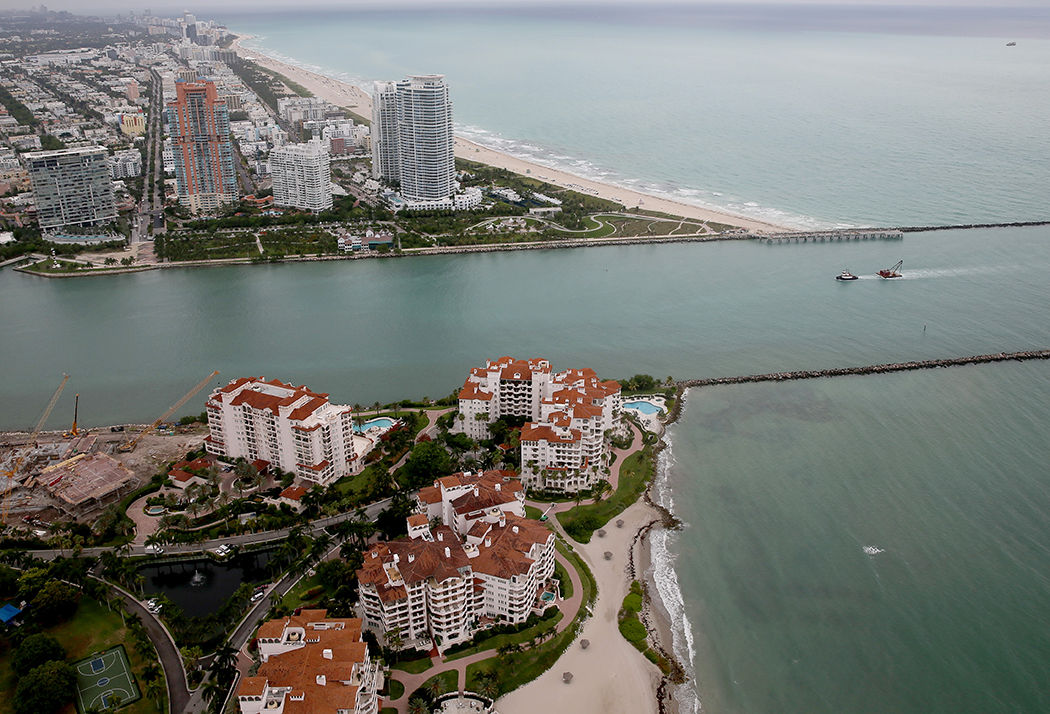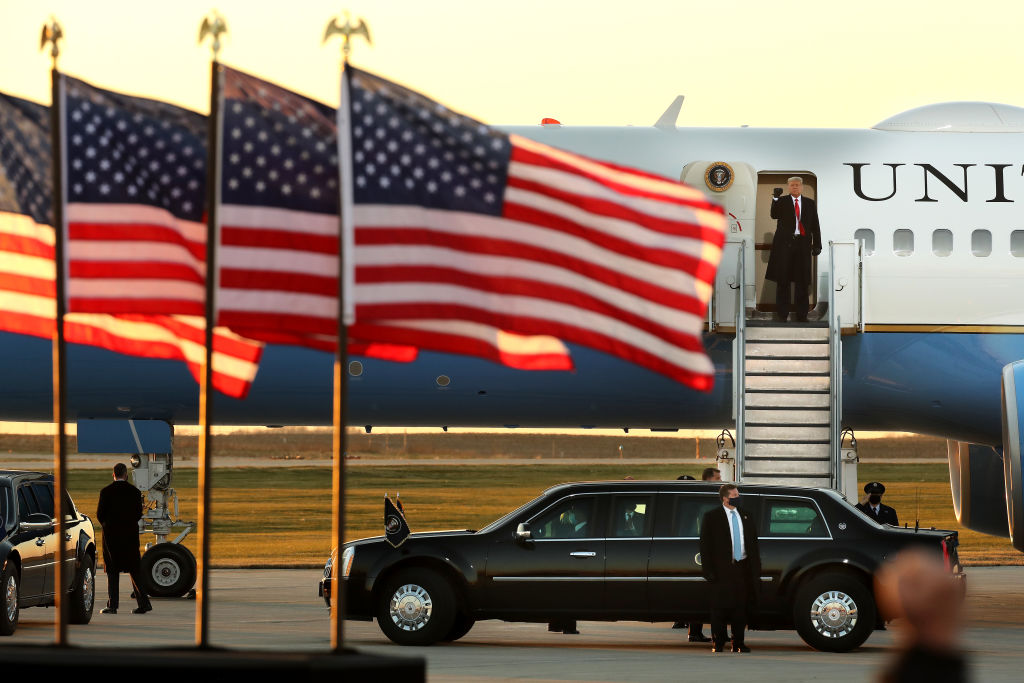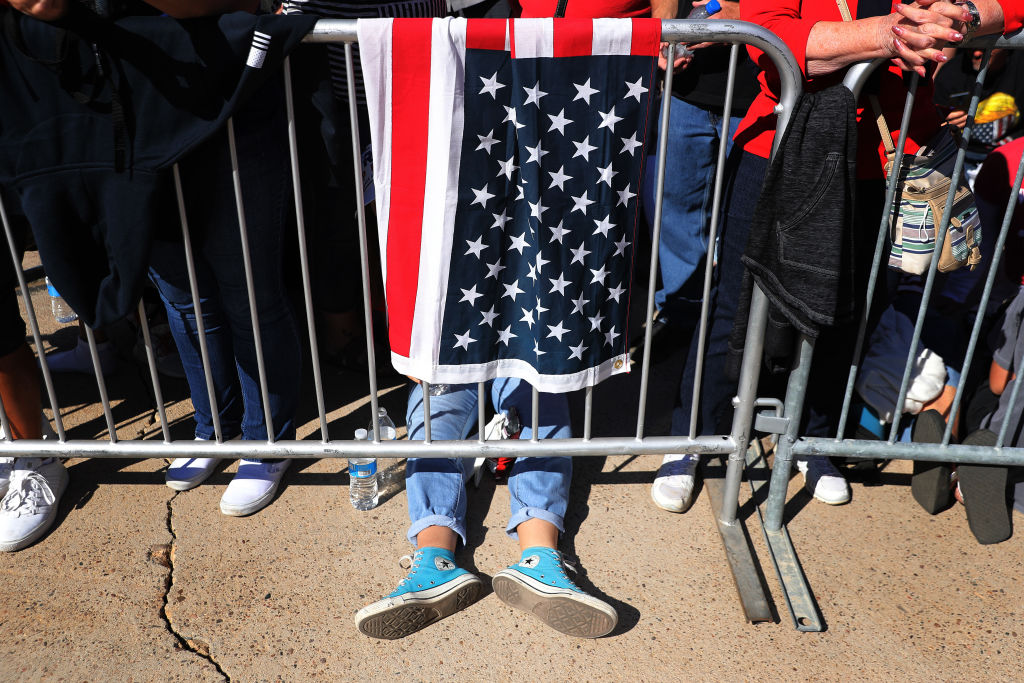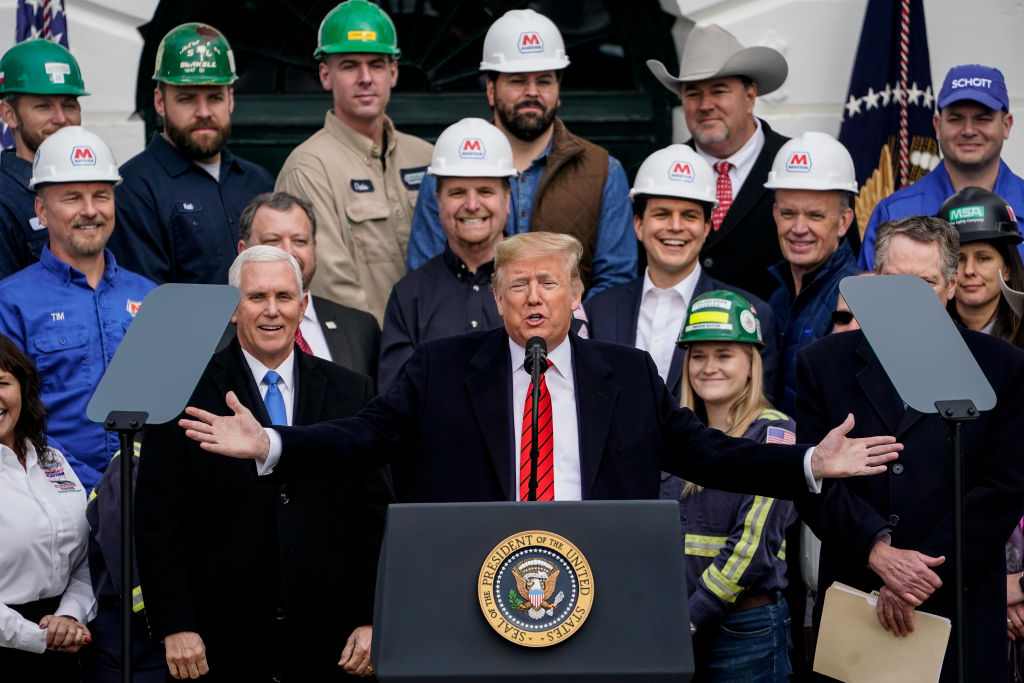“I’m a Trumper,” said 93 year old doctor Irwin Potash, speaking from quarantine in his $1.6 million condo on Fisher Island, a private island in Florida with a golf course, two marinas and 17 tennis courts that’s just a seven-minute ferry ride from South Beach. Potash thinks his wealthy neighbors should be Trumpers, too. If they’re voting for Democrats, “They’re kind of stupid, as far as I’m concerned. They’ll be poor by the time Biden and Harris get in. That’s no way to live, I’ll tell ya.”
Forty miles southwest of Potash, in the agricultural community of Homestead, groves burst with avocados and mangos in summer; bell peppers, tomatoes and strawberries planted here this fall will feed the country all winter. More and more, though, fields are giving way to new homes and apartment developments, as families spread out from Miami proper. Antonia, a field worker who asked that her last name not be used for fear of repercussions from the boss of the small farm on which she works, emigrated from Mexico 30 years ago and is now a citizen. She pools enough to afford a $1,500-a-month apartment where she lives with her daughter, her daughter’s husband and two granddaughters.
“I’m voting for Biden,” she said in Spanish, and she thinks her fellow agricultural workers will, too. “We feel rejection and discrimination from the current president,” she said.
Of course, coronavirus has impacted the lives of rich and poor in different ways, with stocks hitting record highs but workaday wage earners facing historic unemployment. If Irwin Potash gets sick, the University of Miami has a health center on Fisher Island. “You can even get a helicopter,” he said. If Antonia does, she can go to a mobile testing clinic set up after farmworker advocates fought for it.
Miami-Dade County has the second-biggest gap between rich and poor of all large metro areas in the U.S.
Miami-Dade County has the second-biggest gap between rich and poor of all large metro areas in the U.S., according to a 2019 report. (Only the New York metropolitan area is more unequal.) The county’s 33109 zip code – which comprises Fisher Island’s 216 acres and its 800 residences – is the richest not just in the county but in the entire U.S., according to a Bloomberg analysis from last year. Zip code 33034, which covers parts of the rural but quickly developing cities of Homestead and Florida City, plus some unincorporated areas, is the county’s poorest, according to a Miami Herald analysis. For the 23,000 people in its 280 square miles, the per-capita income is $10,608.
Nevertheless, as the 2020 election looms, it’d be wrong to say that the poor will vote for Biden and the rich for Trump. As conversations with residents indicate the political fault lines are not quite so clear-cut.
Dr. Potash said the economy is definitely the issue that will drive his vote. But he also actively dislikes the Democrats’ ideas. Medicare for All? “Ridiculous! You can’t do that. It’s too expensive. Obamacare is terrible,” he said. And “this business of defunding the police, letting rioters and looters take over? I get scared when I see this stuff on TV.”
Matt Barnes, proprietor of DJ and limousine-rental businesses who has lived on Fisher Island for four years, said that the economy is also his top issue. “I started my first business in America’s poorest zip code when I was 12 years old,” he said. That would be 16501 – covering Erie, Pennsylvania – where he started DJing at weddings and events. In his teens and 20s, he missed out on parties because he was working every weekend. Miami’s electronic music scene eventually drew him south.
Barnes’ entrepreneurial drive colors his politics. “Republicans are very much pro-business and extremely anti-socialism and very much all about the American Dream,” he said. “[If you’re] working superhard and taking on enormous risk, you should reap extreme rewards in the event you become successful.” He said he did not want to see people collecting unemployment and having babies. “No – you need to go out and produce, not sit at home and feed off the system.”
Barnes is voting for Trump because he thinks he’s a good businessman. He had no vitriol toward Democrats, but felt that Joe Biden has no standout accomplishments despite his many years in office.
Perhaps the most politically influential couple on Fisher Island is Jeff Spragens, an attorney and commercial real estate investor, and his wife Joy Fowler Spragens, a retired financial adviser turned “full-time constitutional activist.” As of mid-September, the couple had donated more than $1 million to Republican candidates and PACs this campaign cycle: Jeff, $606,986 and Joy, $444,103. Joy is a member of the advisory council of the conservative nonprofit group Turning Point USA, and her Instagram shows her hobnobbing with Roger Stone and Marco Rubio, as well as visiting her organic farm in Sonoma and an orphanage in Haiti. The Spragens did not respond to requests for comment sent through Turning Point and Instagram, but a recent post of Joy’s announced, “God rarely gives us what we need in the package we expect. I don’t really care about our President’s personality. He’s the bodyguard for America. I trust him to keep us safe.”
"I don't really care about our President's personality. He's the bodyguard for America. I trust him to keep us safe."
~ Joy Fowler Spragens, Fisher Island resident
FEC data shows that residents of Fisher Island have donated $1.86 million since January 2019. OpenSecrets, looking at the island’s $1.2 million in political contributions in 2020, noted that was nine times more than the average zip code in the U.S., which has contributed $126,057. The FEC database shows that of the 1,514 political contributions made by residents in 33109 since January 2019, over 900 were from Jeff Spragens. Of the zip code’s donations made directly to presidential candidates’ authorized committees (as opposed to PACs), Biden had six contributions totaling $13,477 as of August 28, while Trump had 88 totaling $32,807.
Fisher Island is not entirely Republican, though. Doctor, author and biotech entrepreneur Mark C. Rogers estimates that about two-thirds of the island’s residents are hedge fund managers and businesspeople leaning Republican, and the rest are lawyers, doctors and educators leaning Democratic. On the island, “Discussions about politics can be tense, similar to elsewhere in the country, and tend to take place more among those who tend to agree,” Rogers said.
Rogers is supporting Biden because “Donald Trump is intellectually and emotionally ill-suited to be president of the United States,” he said. He worries that Trump is pushing the limits of power of the executive branch – “a truly worrisome distortion of our Constitution and a major step toward a more despotic government.”
“Donald Trump is intellectually and emotionally ill-suited to be president of the United States.”
~ Dr. Mark C. Rogers, Fisher Island resident
Given the stark economic disparity within Miami-Dade, one might expect an equal and opposite reaction in Homestead/Florida City – 33034. But there, too, Republicans win the fundraising battle. There have so far been 774 contributions from the zip code this election cycle, 51 of those to authorized presidential committees. Of those, three are for Biden, 43 for Trump. Biden’s were for $25 each, from the same person (who did not respond to a call for comment), totaling $75, while Trump’s ranged from $2 to $430, totaling $3,561.
Even looking at voters instead of dollars, in Homestead/Florida City poverty doesn’t necessarily translate to support for Democrats. The region is diverse: In addition to agriculture – which employs both documented and undocumented workers from Mexico and Guatemala, indigenous people from those countries, and Haitians with Temporary Protected Status – the area’s other employers include an alligator farm, a boat manufacturer, a NASCAR speedway, a prison and a nuclear power plant. And owners of farms and nurseries have their own struggles, against heat, hurricanes and market forces.
Tyra Phillips, executive director of the nonprofit, nonpartisan Dade County Farm Bureau, said, “We work with whoever’s in office” but that a top concern since the 1990s has been the Clinton-brokered North American Free Trade Agreement (NAFTA), and its replacement, the Trump-brokered United States-Mexico-Canada Agreement (USMCA), international agreements that resulted in cheap imports that undercut prices for U.S. farmers. “No matter what you call it, it’s unfair trade practices,” Phillips said. This year, Phillips said, coronavirus disrupted supply chains.
Steve Kirk is a registered Republican who in 2016 voted for Jeb Bush in the primary and Hillary Clinton in the general election. “I am bipartisan to a certain degree,” he said. Though he is president of a nonprofit called Rural Neighborhoods that advocates for farmworkers, he often supports Republicans, like Congressman Mario Diaz-Balart, who is progressive on immigration. Agricultural business owners have strong voting power and political sway to bring home dollars or affect policy in Tallahassee and Washington, Kirk noted.
Nicaraguan-born Lis-Marie Alvarado, who immigrated to the U.S. when she was 12 and is now the Homestead-based program director with the Quaker-influenced nonprofit American Friends Service Committee, likewise noted that the politics of her rural area are complex. Her job includes protecting residents from racial profiling by police and from immigration raids. “ICE has been coming here since Obama time,” she said. Because political leaders assume the entire farmworker population is undocumented – “a misconception,” she says, though she estimates 75 percent are – they’re never really courted by politicians and their needs largely go ignored, she said. So scrappy organizations like hers fill in gaps where social services fail. Alvarado worked this spring to convince the local health department to bring the coronavirus testing unit out.
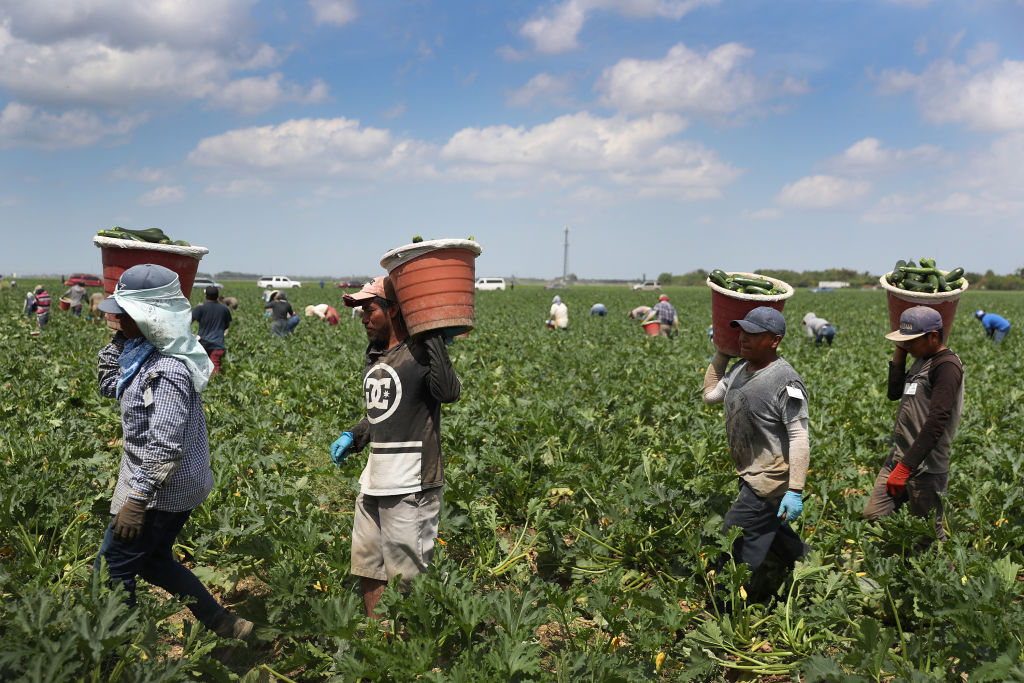
Claudia Navarro, program director with WeCount!, a nonprofit that’s set up like a union, with day laborers and domestic workers paying dues, said, “We’ve seen jobs devastated.” While agricultural workers in farms and nurseries have returned to work, restaurant and domestic workers haven’t, or they’ve had their hours cut. “They have compounding issues. With schools not reopening, they can’t leave kids home alone. They’re not getting support from the government. They haven’t qualified for stimulus relief. They don’t have health care and don’t have savings, so they’re living check to check, desperate to figure out a way to continue to survive.”
When coronavirus hit, Navarro’s group raised $150,000 that it passed out in small cash grants. “The majority of the community we work with directly is not going to be voting,” she said, but she intends to be involved in get-out-the-vote initiatives like phone banking and texting, and supporting Amendment 2, a proposed state constitutional amendment that would set the minimum wage at $15 per hour. “While I cannot speak in terms of who to vote for, I am very clear that this is the election of our lives,” Navarro said.
Homestead Mayor Steven Losner, whose office is nonpartisan, suggested that residents are focused on local issues that affect their everyday lives. “The concerns most often expressed to me are traffic and congestion, and jobs.” With South Florida wedged between the Atlantic Ocean and the Everglades, there’s a finite amount of developable land for an ever-growing population, and builders and homebuyers have been creeping west to find affordability, but many residents have long commutes to work. “That’s always the battle,” Losner said.
“The concerns most often expressed to me are traffic and congestion, and jobs.”
~ Steven Losner, mayor of Homestead
Steve Shiver, a former mayor of Homestead who was born and raised in Florida City and married an immigrant, likewise seemed to think that the most important issues for voters there are local, like child care at the migrant camps.
Otis Wallace, in office since 1984 and sometimes called the “mayor for life” of Florida City, is black, but he suggested racial concerns are not as important as the economy. “There are a lot of hotel rooms in Florida City. It’s the gateway to the Everglades and the Keys.” Tourist visits are about 20 percent of normal, he said. “It’s all interconnected. If the hotels are empty, there’s nobody buying food at the restaurant.” He’s a strong supporter of Democrats.
The Republican Party of Miami-Dade did not respond to a request for comment about its fundraising and voter outreach at opposite ends of the economic spectrum.
Steve Simeonidis, an attorney and chair of the Miami-Dade Democrats, said that while fundraising is important insofar as it helps drive voter turnout, the main goal for Dems this year is to make sure people get to the polls and that their votes are counted. He suggested that, even for voters most concerned about the economy, Dems are the better bet, as they support the working class.
“We are the party of the living wage,” Simeonidis said. “Trump may be better for the stock market, but a small minority of Americans own stock, because a small minority of Americans are the only ones that can actually afford to have savings… The average American could give a shit.”
Simeonidis doubts his party will do any outreach to Fisher Island as the election ticks closer, “but we will absolutely be down in Homestead,” he said. There’s a heated state senate race there, and high hopes among Dems that Miami-Dade will elect its first female mayor in Daniella Levine Cava. Simeonidis emphasized the hotel, restaurant and transportation workers who power South Florida’s tourist economy and said that Democrats have strong union support.
Florida might be a swing state, but Simeonidis doesn’t think there are too many undecided voters to convert. “The man in the Oval Office is so appalling and his record is so completely horrific and in your face that if you are somehow not convinced by statements he’s made, I don’t know that us pouring money [to persuade you] is going to make a difference.”
Neither the Trump nor the Biden campaign responded to requests for comment for this story.
Copyright 2020 Capital & Main

